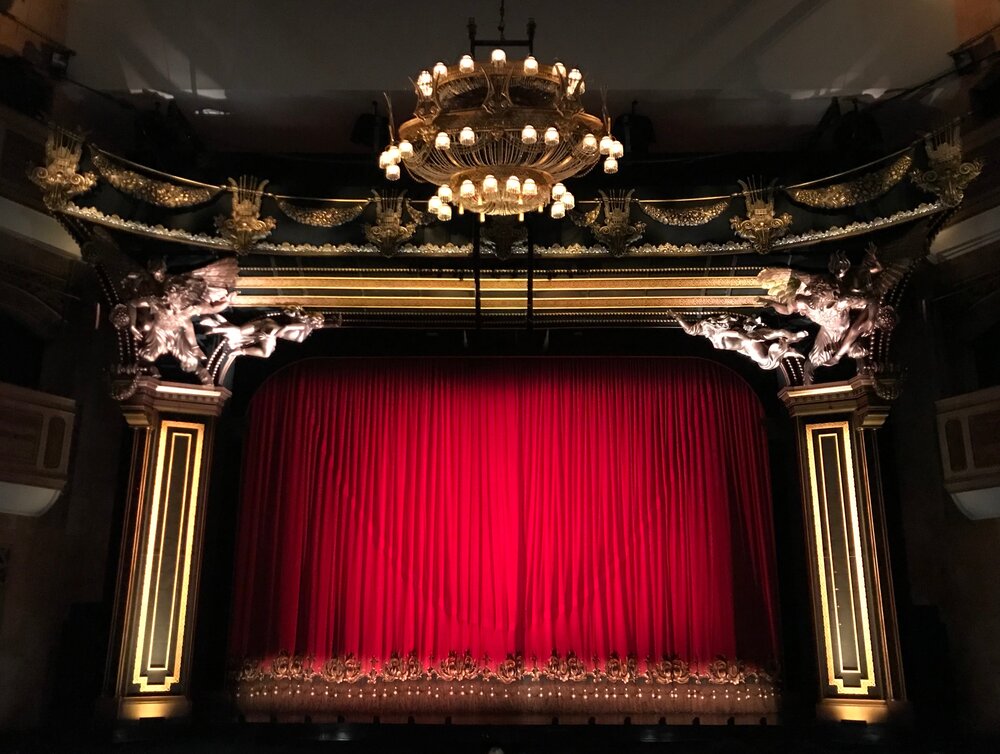
Photo by Gwen Ong on Unsplash
Many of us have seen a theatrical production, but more often than not these performances consist of a fully-scripted play or musical. Enter the less common form of musical production—the musical revue—created from pieced-together acts, songs, bits, and routines from other shows. To the surprise of some, the creator of a musical revue can claim copyright protection for the entire show, even as each component is owned by someone else. The overlap of ownership here can be both confusing and risky, so let’s unpack the issues.

The Copyright Act provides federal protection for original works such as literary, dramatic, musical, and artistic creations. This federal protection advances the Copyright Act’s purpose of promoting the progression of the arts by protecting the exclusive right of copyright owners to benefit from their works. That said, the Copyright Act also offers explicit protection for “compilations,” or works formed by the original and creative selection, coordination, and arrangement of preexisting materials. Notice what is protected: not each individual piece of preexisting material (which may be owned by someone else), but rather the unique work resulting from the creative decisions involved in compiling those materials. The musical revue falls squarely within this federal protection.
One may wonder why such a doctrine exists—after all, what’s the point of protecting an individual work if someone else is allowed to group it with other materials and claim copyright protection in the resulting compilation? One answer is that it encourages the creation of new works, thereby advancing the Copyright Act’s purpose of promoting the progression of the arts. Although it can hardly be said that “there is nothing new under the sun,” time has shown that even wholly original works are sometimes strikingly similar to preexisting works (e.g., Avatar as compared with Pocahontas and The Lion King as compared with Shakespeare’s Hamlet). Indeed, some authors even base new works wholly on preexisting works (e.g., West Side Story, Kiss Me Kate, and My Fair Lady as compared with Shakespeare’s Romeo and Juliet, The Taming of the Shrew, and Pygmalion, respectively). The Copyright Act takes everything a step further—explicitly granting authors the right to protect their compilations of preexisting material.
Another answer is that the Copyright Act’s protection for a compilation still requires the musical revue creator to seek permission for the use of the underlying materials. While the creativity required to arrange the compilation is protected, the compiled materials have their own authors, with their own rights, which may include the right of public performance, the right of reproduction, and more.
For example, performance of a musical revue in public requires certain steps to avoid legal issues (see my blog post on performance rights). Performance rights organizations (“PROs”) like ASCAP, BMI, and SESAC represent composers and lyricists, and many performance venues purchase “blanket licenses” from PROs to be able to publicly play or perform music. Such licenses primarily cover performances of songs themselves, and are not suitable for fully-produced performances or any other use—the policy is to prevent the circumvention of royalty payments through only performing a scene or two from a musical. Further licensing will likely be required in order to make other, non-performance-related uses of a song (e.g., displaying a song’s sheet music on a web site, copying an audio file and distributing it to others, etc.), and it is therefore best practice to check with the licensing agency or the music publisher that represent the songwriter or musical from which the song or songs come to make sure you are operating under the law.
The licensing process can be complicated, but making sure your use of a song is cleared beforehand could substantially reduce the risk of headaches down the road. But hey—once the materials in your musical revue are cleared and your performers are rehearsed, you’ll have a show! And you wouldn’t want others performing your show without permission.
U.S. copyright law is fraught with various intricacies, but it is always important to remember that if you’ve got a work you would like to protect (even if your work is a compilation of materials containing preexisting works), consider applying for the protection afforded by registration with the U.S. Copyright Office. You never know who may “revue” your materials.
For more information on this article and this topic, contact Charles Wallace.